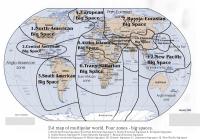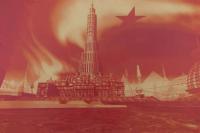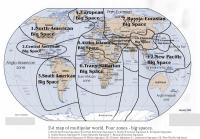THE EURASIST VISION
Against the establishing of the atlantist world order and globalisation stand the supporters of the multi-polar world – the eurasists. The eurasists defend on principle the necessity to preserve the existence of every people on earth, the blossoming variety of cultures and religious traditions, the unquestionable right of the peoples to independently choose their path of historical development. The eurasists greet the generality of cultures and systems of values, the open dialogue among peoples and civilizations, the organic combination between the devotion to traditions and the creative impulse.
Eurasists are not only the representatives of the peoples living in the Eurasian continent. Being eurasist is a conscious choice, which means combining the aspiration to preserve the traditional forms of life with the aspiration to free creative (social and personal) development.
In this way, eurasists are all free creative personalities who acknowledge the values of tradition; among them are also the representatives of those region which objectively form the bases of atlantism.
Eurasists and atlantists are opposed to each other in everything. They defend two different, alternative, mutually excluding images of the world and its future. It is the opposition between eurasists and atlantists which defines the historical outline of the XXI century.





















